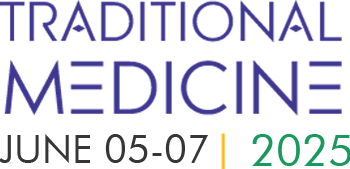Title : Towards decolonizing medicine and healthcare: The place of African health and healing traditions
Abstract:
Traditional medicine and therapeutic techniques have a long history in Africa for treating a wide range of human and animal health conditions. Sadly, this rich body of knowledge has for a long time been undervalued because of the dominance of Eurocentric mindsets and practices. But current research confirms that many of today’s medicines are derived from tropical African medicinal plants, and that traditional medicine can provide a lead to scientific breakthrough in drug discovery and modern medicine. We argue that global health science needs to integrate the health traditions of local communities in Africa. With colonialism, modernity and the emphasis on the use of pharmaceutical drug, vaccination and other form of biomedicine, traditional medicine now has to contend with the dismissive bias of doctors and government official who claim that the practice of traditional medicine does not conform with the scientific principles of modern medicine, least of all the spiritual and cultural aspects of healing that sometimes involve divination, rituals, belief in witchcraft, and so on. These officials tend to distrust traditional medicine, and to insist on the need for to validate, codify and standardize it practice in order to ensure greater safety and efficacy. They therefore often hesitate to provide the regulatory and legislative framework for integrating traditional medicine into the national health system Unfortunately, modern or orthodox medicine, with all its obvious merits, is not readily accessible and affordable to a large percentage of the populations, especially in the rural areas; and even in cities, most people tend to combine traditional and modern medicines, especially during epidemics like HIV/AIDS EBOLA and COVID19, and in respect of such ailments as insanity for which Western medicine has not provided ready cure. The paper underscores the value and continuing relevance of traditional medicine and other aspects of Africa’s rich cultural heritage. It stresses the need to promote comparative medicine and collaboration between scientists and practitioners of modern medicine on the one hand, and on the other those who hold and use traditional medical knowledge, so that the traditional and the modern will complement and enrich each other, and thus advance the prospect of attaining Universal Health Coverage.



